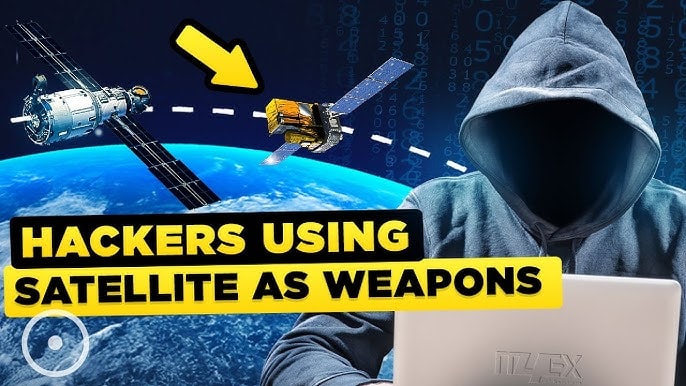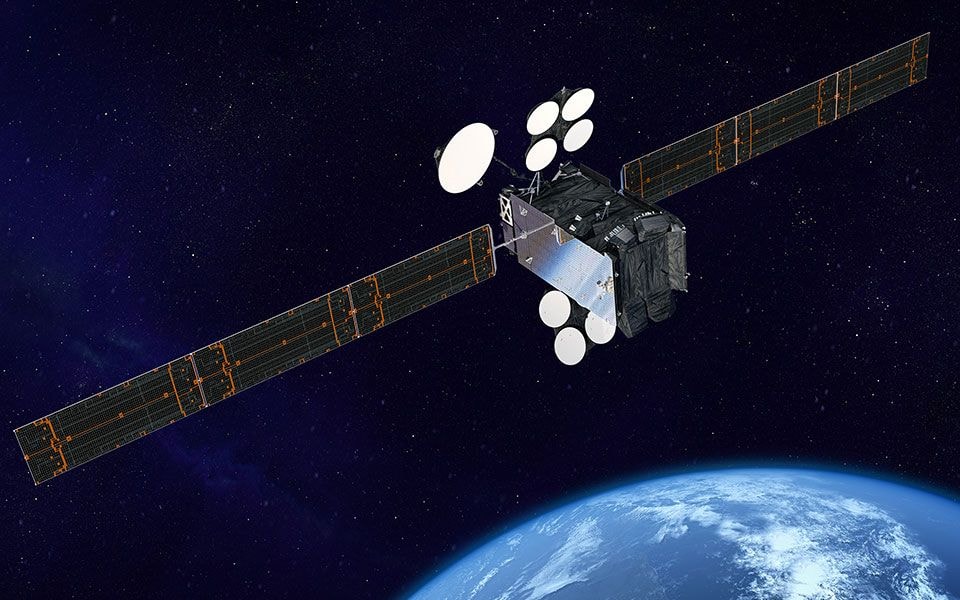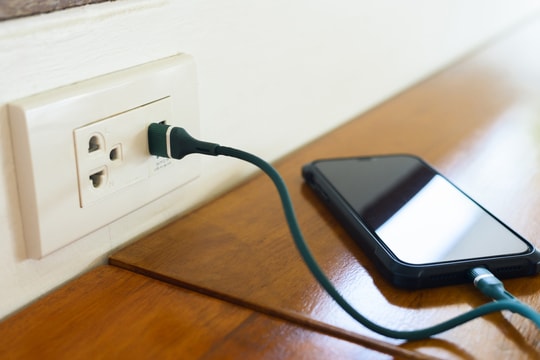Shocking discovery: Satellite information was intercepted using cheap equipment
Signals from satellites are transmitting vast amounts of data, including calls, messages and internal communications, unencrypted, opening them up to eavesdropping using cheap equipment, a new study finds.
In the era of global connectivity, satellite networks are seen as a key platform to maintain communication in remote areas or in emergency situations.

However, a new research paper presented at the Computer Security Applications Conference (ACSAC) in the US has sounded the alarm about satellite signals carrying sensitive data, from corporate accounts to military communications, being broadcast publicly without encryption.
Satellite signals can be easily intercepted.
As first reported by Wired, a team of researchers from the University of Maryland and the University of California discovered that many satellite internet services are still transmitting data in an unencrypted form. Using a commercial satellite antenna worth about $800, scientists were able to intercept and analyze signal streams containing calls, SMS messages and sensitive data.
The 30-plus page study detailed how the team conducted “the most comprehensive public survey to date” of geostationary (GEO) satellite communications, which revealed “large amounts of sensitive traffic” being broadcast without any encryption.
These data include: Critical infrastructure information of businesses and governments; Internal communications between organizations; Voice calls and SMS messages of citizens and civil internet traffic from Wi-Fi on airplanes or mobile networks in remote areas.
It's worth noting that the study only focused on geostationary (GEO) satellites, which are fixed in one position above Earth, and did not include low-Earth orbit (LEO) satellite systems like Starlink.
Why are satellite communications more vulnerable to attack?
Security on satellite networks is much more complex than on terrestrial networks, according to Mahdi Eslamimehr, executive vice president at Quandary Peak Research. That’s because these systems often use a variety of security protocols, implemented asynchronously between vendors. When signals have to travel through multiple ground stations and satellites, consistent encryption becomes difficult, leading to “holes” that are easily exploited.

“Not all providers apply encryption consistently,” Eslamimehr said. “This leaves vulnerabilities that are distinctly different from the risks found on conventional mobile networks.”
In fact, research shows that about half of the satellite signals tested carry unencrypted data, including sensitive military information. In addition to the risk of leaking strategic data, this also leaves individual users vulnerable to location tracking, text message interception, or phone call eavesdropping if proper protections are not in place.
How to protect users from eavesdropping risks
It’s a common mistake for consumers to believe that satellite networks are “naturally secure,” experts say. In reality, satellite connections should be treated like public Wi-Fi hotspots, where any data transmitted can be monitored if not encrypted.
Eslamimehr recommends that users should:
- Use a personal virtual private network (VPN) when accessing the Internet via a satellite connection to encrypt end-to-end data.
- Prioritize apps with built-in end-to-end encryption like Signal or WhatsApp when calling or texting.
- Update software and hardware regularly, as security patches often include improved encryption protocols.
“Satellite technology is very useful in bridging the digital divide, especially in remote areas,” Mr. Eslamimehr emphasized. “But it still needs a long maturity cycle to reach the same level of security as today’s mobile networks.”
The problem is not just about technology.
Many experts warn that these vulnerabilities are not just technical issues, but also governance and security policy issues. The lack of common industry-wide encryption standards makes it difficult for operators to maintain consistency when linking different networks.
Some countries, particularly those that use satellite infrastructure for defense and telecommunications, have begun to rethink their encryption and data transmission practices. However, the change is often slow, and the threat of eavesdropping can be immediate with even low-cost transceivers.
In short, this study once again highlights a significant security gap in the global satellite communications system. As this technology becomes increasingly important for emergency communications, aviation, and the military, leaving data broadcast unencrypted is a serious risk.
Satellite communications can help us connect anywhere, but if not properly protected, they can open the door for those who want to eavesdrop on the world./.



.jpg)


